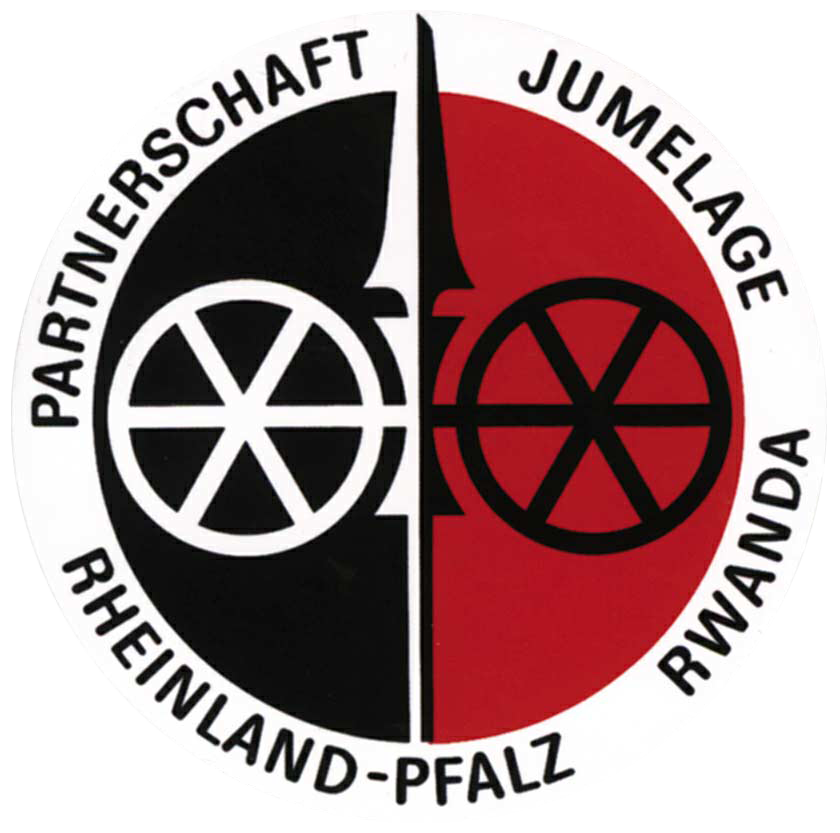Pacifique Muhoza

Dear Pacifique Muhoza, would you like to briefly introduce yourself to our readers?
Yes, my name is Pacifique Muhoza and I am 26 years old. I have been living in Rhineland-Palatinate since 2014, in Kaiserslautern, where I studied chemistry at the TU Kaiserslautern after a one-year German course.
What motivated you to come to Germany? Is it a coincidence that you are studying in Rhineland-Palatinate, Rwanda's partner country? Are you familiar with the jumelage?
Thanks to the close partnership between Rwanda and Rhineland-Palatinate, I received a scholarship to continue my studies here in 2014 after completing my first year at the University of Rwanda as part of a scholarship programme with the TU Kaiserslautern. However, I was also able to experience the Jumelage earlier, as there have long been partnership projects in my home region of Ruli from which many people benefit.
What degree are you aiming for and do you already have plans for after graduation?
I completed my Master's degree in January and this March I started my doctorate in chemistry at the TU Kaiserslautern.
In November 2020, you were awarded the German Academic Exchange Service (DAAD) prize for outstanding achievements by foreign students. What does this award mean to you?
I was very pleased and I am grateful that the academic achievements and commitment of foreign students are made visible and recognised by the DAAD. This not only motivates the award winners, but also shows all international students that they don't need to hide their abilities and talents.
The award was not only for your outstanding achievements during your studies, but also in recognition of your commitment outside the TU Kaiserslautern. What else do you do alongside your studies, which certainly takes up a lot of your time?
From the very beginning, I found it essential to get involved outside of university education in order to create a balance, develop non-technical skills and make a contribution to the well-being of others. As a result, I was able to take on responsibility in the Rwandan student body as Vice President and in the Catholic University Community (KHG) as a local council spokesperson. I also became aware of the World University Service (WUS) and found their work with foreign students through the project ‘Grenzenlos - Globales Lernen in der beruflichen Bildung’ very important. I also took part in the project to bring global sustainability topics to vocational schools and discuss them with students.
Is there any time left for normal hobbies?
Yes, I do - I've been playing football in a district league club near Kaiserslautern since last year. Apart from football, I play table tennis or read a good book in my spare time.
Would you like to tell us what topic you chose for your Master's thesis and why?
In my master's thesis, I worked on a catalyst that can potentially be used to recycle plastic materials. This is an important topic in view of the global environmental pollution caused by plastic waste, for example.
In addition to your academic focus, you also work as a consultant at World University Service - how did this come about and what exactly do you do there?
I first learnt about WUS through a circular email and I found their work very interesting. As part of the ‘Grenzenlos - Globales Lernen in der beruflichen Bildung’ project, I then took part in qualification seminars with other students, where we were introduced to sustainability topics based on the SDGs. After the qualification seminars, we then take the message to vocational schools as certified speakers, where we organise workshops and seminars in cooperation with the teachers. My topics are centred around raw materials, sustainability and climate change.
Would you also like to tell us about your activities at the KHG? What do you do there and are there any links to your home country?
The KHG has been a new family for me right from the start. We have a local council there, which we call the Forum. I am a member of this forum and have been the forum spokesperson for the past few years. At the beginning of each semester, this forum sets a semester theme around which all activities in the semester, such as discussion groups, excursions and so on, revolve. We have also maintained close partnerships with student communities from Metz in France and Kigali in Rwanda for many years. This international exchange enriches us greatly.
And what will happen for you after your studies? Would you like to stay in Germany for longer or would you prefer to go straight back to Rwanda?
I really appreciate the limitless opportunities that exist nowadays. So I remain open to both options.
What are your visions for the future of Rwanda and what do you think you can contribute as a young person?
Rwanda has been on a good path for years and is developing enormously both economically and socially. Young people also play an important role in this process in management positions and in technical areas. I think that's good for the future.
The Jumelage celebrates its 40th anniversary in 2022 - what would be important to you in terms of the future direction of the partnership?
The work we have done so far is already very good. I am therefore optimistic that the partnership will continue to grow and become stronger in the future.
 Partnerschaftsverein Rheinland-Pfalz/Ruanda e.V.
Partnerschaftsverein Rheinland-Pfalz/Ruanda e.V.